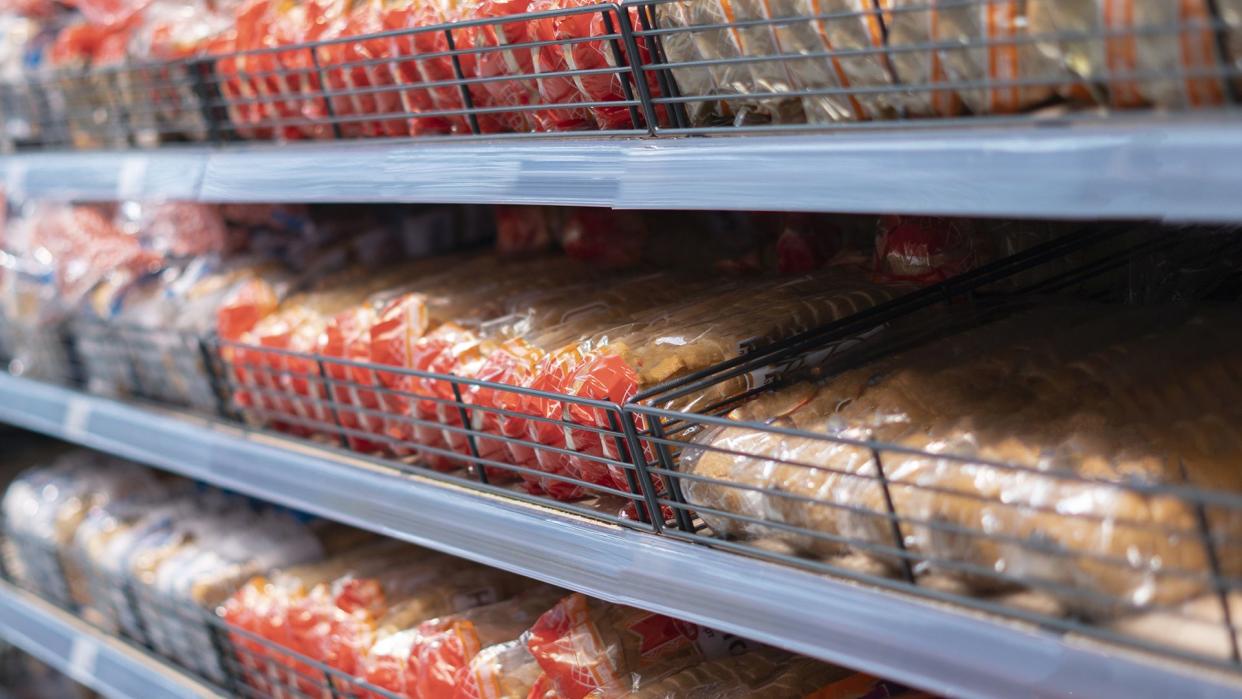These Food Shortages Could Continue Into 2023

- Oops!Something went wrong.Please try again later.
Persistent supply chain issues, climate change and the Russia-Ukraine war are just some of the reasons why food shortages will likely continue in 2023.
See: 10 Best Costco Appetizers & Finger Foods To Buy for the Holidays
Food Stamps: What Is the Maximum SNAP EBT Benefit for 2023?
“We are on the way to a raging food catastrophe, and the world appears to be indifferent. People in five separate places are facing famine. At G20 Summit I warned that without coordinated action, this year’s crisis of affordability may become next year’s global food shortage,” United Nations (UN) Secretary General Antonio Guterres tweeted on Nov. 15.
Which food items could continue to be in short supply next year?
Bread Shortages in 2023?
As Mashed reported, with the continuation of Russia’s war in Ukraine (the countries account for nearly 20% of global cereal grain production), “many bakeries and factories may struggle to obtain the necessary ingredients to make bread, leading to a potential shortage in 2023.”
And an August McKinsey report noted that next year may be even worse, as it estimated that crop production in Ukraine will decline by 35% to 45% in the next harvesting season, which started in July.
Potential Sunflower, Palm Oil Shortages
The Brookings Institution noted that in 2020, 52% of globally traded sunflower seed and oil came from Ukraine in 2020.
“Currently, edible-oil supply chains are disrupted and edible-oil prices increased even higher than cereals prices,” it added.
Compounding the issue, Mashed reported that there is a concurrent palm oil shortage in Indonesia.
“Since Indonesia is the world’s leading producer of palm oil, any ongoing supply issues only compound the potential problem of vegetable oil availability in 2023,” Mashed noted.
Champagne Could Be Hard To Find Next Year
Climate change has put a damper on the production of champagne, as “a rash of extreme weather that year [2021] resulted in a devastating number of crops growing fungus, leading to a smaller than average crop yield,” Mashed detailed.
Beers, Canned Food and Pet Food
The great aluminum shortage, which started in 2020, has no end in sight.
Take Our Poll: How Has Inflation Impacted Your Holiday Shopping Plans?
More: 8 Walmart Frozen Foods That Give You the Best Bang for Your Buck
Labor shortages, the pandemic, the ongoing supply chain crisis and increased demand are to blame, according to ClickOrlando.
“As far as the aluminum shortage ending, experts are hesitant with predictions,” Vincent Metals suggested. “However, most agree the earliest expected end would be sometime in 2023. As the nation moves back towards normalcy, aluminum purchasing could subside and have uncertain impacts on the supply chain. In the meantime, additional production plants are being constructed to keep up with the high demand and current shortage.”
More From GOBankingRates
This article originally appeared on GOBankingRates.com: These Food Shortages Could Continue Into 2023

